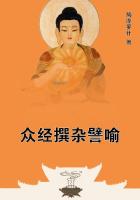For centuries France had been the zealous defender of the Church and of the Holy See. From the days of Clovis the French nation had never wavered in its allegiance to the successors of Saint Peter, many of whom had been obliged to seek refuge on the soil of France. In return for this support given ungrudgingly in many a dangerous crisis, several important privileges were conferred by the Popes on the French rulers, in which privileges moderate supporters of Gallicani** were inclined to seek the origin and best explanation of the so-called Gallican Liberties. But the extreme Gallicans, realising that such a defence could avail but little against the Pope, who could recall what his predecessors had granted, maintained that the Gallican Liberties were but the survival of the liberty possessed by individual churches in the early centuries, that these liberties had been restricted gradually by the Holy See, which succeeded in reducing the national churches to servitude, and that the French Church alone had withstood these assaults, and had maintained intact the discipline and constitution of the apostolic age. The rulers of France, well aware that every restriction upon the authority of the Church meant an increase of the power of the Crown, gladly fostered this movement, while the French bishops, unconscious of the fact that independence of Rome meant servitude to the king, allowed themselves to be used as tools in carrying out the programme of state absolutism.
The Pragmatic Sanction of Louis IX., referred to by many writers as the first indication of Gallicani**, is admitted by all scholars to be a forgery. The exorbitant demands formulated by Philip the Fair during his quarrel with Boniface VIII. are the first clear indication of the Gallican theory that confronts the historian. The principles laid down by the rulers of France during this quarrel were amplified considerably in the writings of William of Occam, Jean of Jandun, and Marsilius of Padua, and were reduced to definite form in the time of the Great Western Schism. At that time, mainly owing to the influence of Gerson, D'Ailly, and other French leaders, the doctrine of the superiority of a General Council over the Pope was accepted, and received official confirmation in the decrees of the fourth and fifth sessions of the Council of Constance (1414-17), and in the Council of Basle (1431-6). The decrees passed by the Synod of Bourges (1438) were strongly anti-papal, and despite of the efforts of Nicholas V. and his successors to procure their withdrawal most of them remained in force till the Concordat of 1516. Partly owing to this Concordat, by which the right of nomination to all bishoprics and abbacies in France was secured to the Crown, and partly to the strong feeling aroused in France during the conflict with Calvinism, little was heard of Gallicani** during the sixteenth century. It was mainly, however, as a result of the opposition of the French bishops that the decree of the Council of Florence regarding papal supremacy was not renewed at the Council of Trent, and it was in great measure due to the influence of Gallican principles that the decrees of the Council of Trent were not received in France for years.
Gallicani** was renewed in the beginning of the seventeenth century by Edmund Richer (1559-1631), syndic of the Paris University and editor of the works of Gerson. He was a man who held novel views about the constitution both of Church and State, and who professed his sincere admiration for Gerson's exposition of the relations that should exist between a General Council and the Pope. In 1610 one of the Dominican students undertook to defend publicly the supremacy and infallibility of the Pope, whereupon a violent controversy broke out, but it was settled for a time by the prudent intervention of Cardinal Du Perron.
The Parliament of Paris, however, undertook the defence of Richer and of the work that he published in explanation of his theories. In this book, /De Ecclesiastica et Politica Potestate/ (1611) he laid it down that the Church was a limited not an absolute monarchy; that the whole legislative power rested in the hands of the hierarchy, composed according to him of both bishops and parish priests; that this legislative power should be exercised in a General Council, which as representing the entire hierarchy was the repository of infallibility, and was not subject to the Pope; that the power of executing the decrees of General Councils and of carrying on the administration of the Church rested in the hands of the Pope, who could not act contrary to the canons; that neither Pope nor hierarchy could undertake to enforce ecclesiastical decrees by any other means except persuasion;and that if force were required it could be exercised only by the head of the State, who was the natural protector of the Church, and responsible to God for the due observance of the canons.
This book was condemned by the provincial Synod of Sens, held under the presidency of Cardinal Du Perron in 1612, by the provincial Synod of Aix, by the Bishop of Paris, and by the Pope. The Parliament of Paris, however, supported Richer, who lodged an appeal with the civil authorities against the action of the bishops, and sought to secure for his theories the support of the Sorbonne. Though forced by the king to resign his office at the University he continued to defend his views stubbornly till 1629, when for political rather than for religious reasons he was called upon by Cardinal Richelieu to sign a complete recantation. Shortly before his death in 1631 he declared in the presence of several witnesses that this submission was made freely and from conviction, but some papers written by him and discovered after his death make it very difficult to believe that these protestations were sincere.















